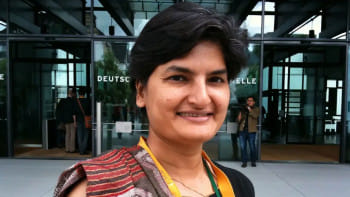Change Maker: Doing it on their own

For the inhabitants of Tekota and Gairala villages in Chittagong's Patiya upazila, this February 17 was a memorable day. On that morning at least 300 locals from all walks of life gathered by the roadside, along the one-and-a-half kilometre road between the villages. At the ready, many had spades in hand. They were about to do something most had never done before: reconstruct a road. After numerous unsuccessful requests to administrators to fix the road, which has not seen repair work in 40 years, the villagers decided to take the matter into their own hands.
“I can't tell you how much I enjoyed that day,” says local health worker Seema Barua. “A significant number of women and children joined with the men to rebuild the road. Working alongside fellow villagers was really special.”
“I had no previous experience of performing such hard labour,” says teacher Kakolia Barua who travelled to Tekota from Chittagong city just to take part. “But I wanted to participate since I used to rely on that road during my school and college years. The road was in a dilapidated condition for so long and we saw no government initiative to repair it.”
“I took it as a challenge,” says farmer Champak Barua. “I wanted to see if we could manage the reconstruction without government assistance. On that day, we proved that major work is possible with collective effort.”

Assistant revenue officer Bikash Kanti Barua travelled from Bagerhat to contribute. “I live in a town now but my family members live in the village and they can't use that road. If a villager becomes sick they have to travel a circuitous route to reach hospital.”
According to local engineer Pulak Kanti Barua, who is also convenor of the Bangladesh Bangalee Adivasi Union, villagers offered not only physical labour on the day, but also contributed financially.
“Local chairmen and lawmakers over the years gave endless assurances regarding the road,” says Sarit Chowdhury, one of the organisers of the event. “But they took no action. Villagers had to use a by-pass to reach upazila headquarters, which adds an extra eight kilometres to the journey. Students in particular suffered. Now we can reach the upazila town within 20 minutes.”
“This community roadwork is a shining example of what collective social work can accomplish,” says Ranabir Ghosh, chairman of the local Dhalaghat union who inaugurated the event. When asked why the council had never repaired the road, he said he was unsure why the previous chairman was indifferent about it, but that he would ensure the road's development from now on.
Interestingly, the road has always held significance beyond being a vital transport link. It is a historical route named in honour of anti-colonial activist Masterda Surja Sen, who used the road to evade British authorities following his participation in a revolt in the 1930s. This road, a long time symbol of the first struggle for independence has now acquired a second, inspiring meaning. Communities too can act independently. When they do, there's little that can't be achieved.
“If we waited for the government,” reflects Seema, “we wouldn't have ended up with such a good road and more than that, we never would've known how it feels to accomplish something as a community, together.”



 For all latest news, follow The Daily Star's Google News channel.
For all latest news, follow The Daily Star's Google News channel. 



Comments